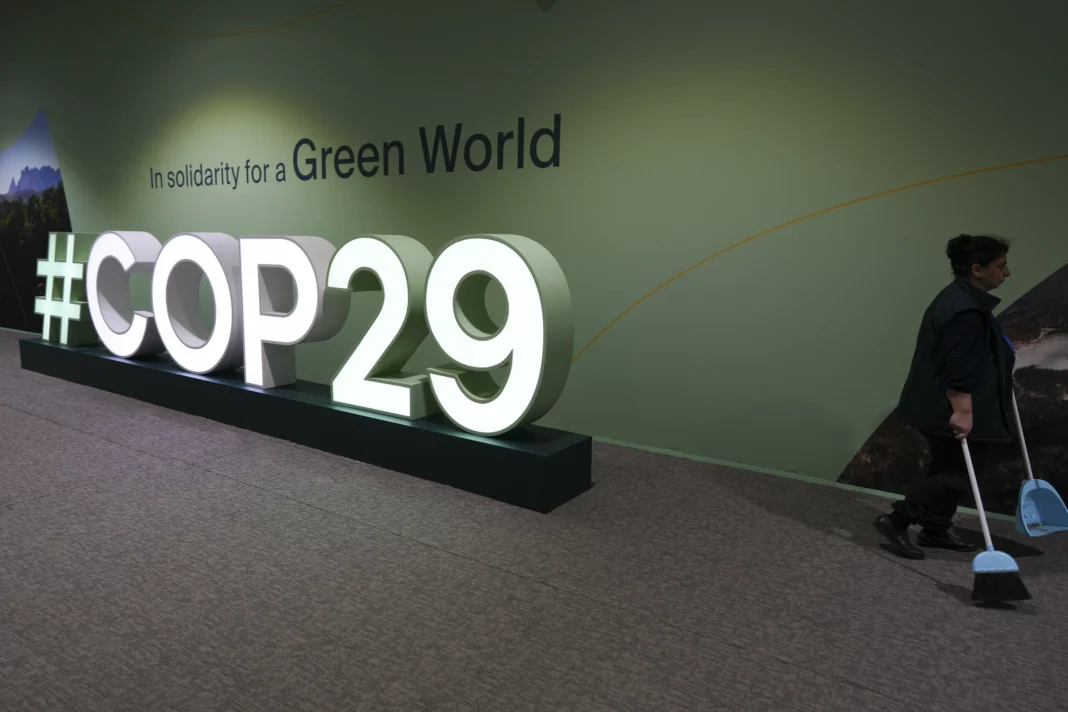As the United Nations’ 29th annual summit on climate change kicks off in Azerbaijan’s capital of Baku, the world holds its breath in anticipation. The COP29 summit, as it is known, is a crucial gathering that aims to facilitate urgent, global cooperation on tackling climate change. With the aim of keeping environmental warming below 1.5 degrees Celsius on pre-industrial levels, governments from nearly 200 countries have come together to hash out a climate finance deal that will help fund poorer nations in their efforts to combat the effects of climate change.
However, as we enter the 29th year of these crucial climate talks, it is hard not to wonder – have we lost faith in the COP summits? Despite the previous agreements and promises made at these meetings, scientists continue to sound the alarm and plead for more action from governments. The looming threat of climate change still hangs in the balance, and the world’s citizens are starting to question if these summits are enough to make a real difference.
According to a recent YouGov poll, it seems that the British public has little faith in the COP29 summit. Only 9% of Brits believe that this summit will result in significant action to tackle climate change – a stark contrast to the 73% who have a more pessimistic view, saying it is unlikely to result in anything noteworthy. While 53% of Brits still hold out hope for these summits to offer significant progress, they also believe that there are other important methods to tackle climate change.
One such method is the development of cleaner and more environmentally friendly technologies, which 78% of Brits consider to be essential. 71% also believe that encouraging companies and corporations to adopt more eco-friendly practices is crucial, while 68% consider trade deals that promote carbon emission reduction to be a key factor. A further 59% think that more action from the United Nations could have a significant impact, while 59% also believe that public pressure on governments to act is essential in the fight against climate change.
Despite these concerns and doubts, the COP summits have achieved significant milestones over the years. This annual platform for climate change discussion has resulted in international promises to reduce greenhouse gas emissions and has led to the creation of the Paris Agreement. It has also secured commitments to move away from coal and support developing countries that are particularly vulnerable to the effects of climate change.
However, as we enter the year 2024, it is clear that these accomplishments may not be enough. With scientists warning that this could be the warmest year on record and the dire warnings from UN Secretary-General Antonio Guterres that the “era of global warming has ended” and the “era of global boiling has arrived,” it is evident that more drastic action is needed.
The slow reduction of carbon emissions has resulted in some experts believing that the path to limiting global warming to 1.5 degrees Celsius has already disappeared. This belief is reflected in the YouGov poll, which found that 17% of Brits now think it is too late to avoid the worst effects of climate change – a significant increase of 6% from 2019. Another 57% of respondents believe that the UK can still avoid the worst effects of climate change, but only if drastic action is taken.
Despite the urgency of the situation, the absence of some world leaders at the COP29 summit is concerning. Outgoing US President Joe Biden will not be attending, and there are fears that his successor, Donald Trump, will once again withdraw the US from the Paris Agreement. Trump’s impact on the climate change fight cannot be ignored, as he has already pulled the US out of the agreement once before, and has promised to increase the country’s oil and gas production.
Other leaders, such as France’s President Emmanuel Macron and Germany’s Chancellor Olaf Scholz, will also not be present due to various reasons. The European Union’s delegation will be thin, and even some of the countries most vulnerable to the effects of climate change, such as Papua New Guinea, will not be attending. This lack of attendance from world leaders raises concerns about the commitment and determination of countries to tackle climate change.
However, the COP26 President, Sir Alok Sharma, has stressed that what matters most is the pledges and commitments made by these countries, not just their attendance at the summit. He also highlights the role of ministers in the negotiations, rather than the heads of state. While it is disappointing



